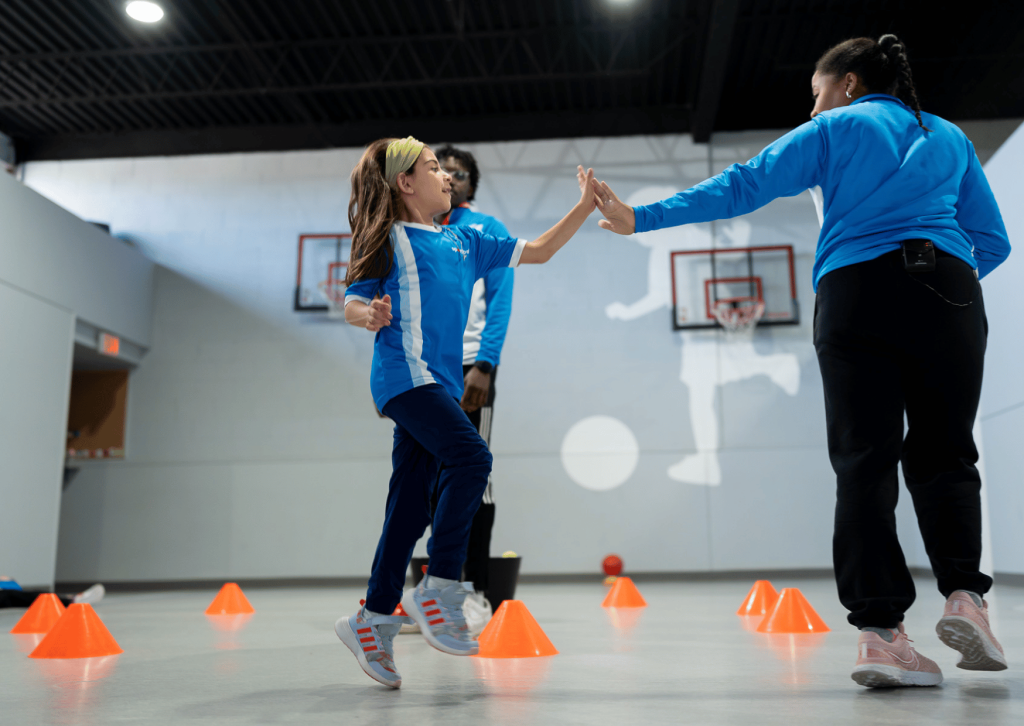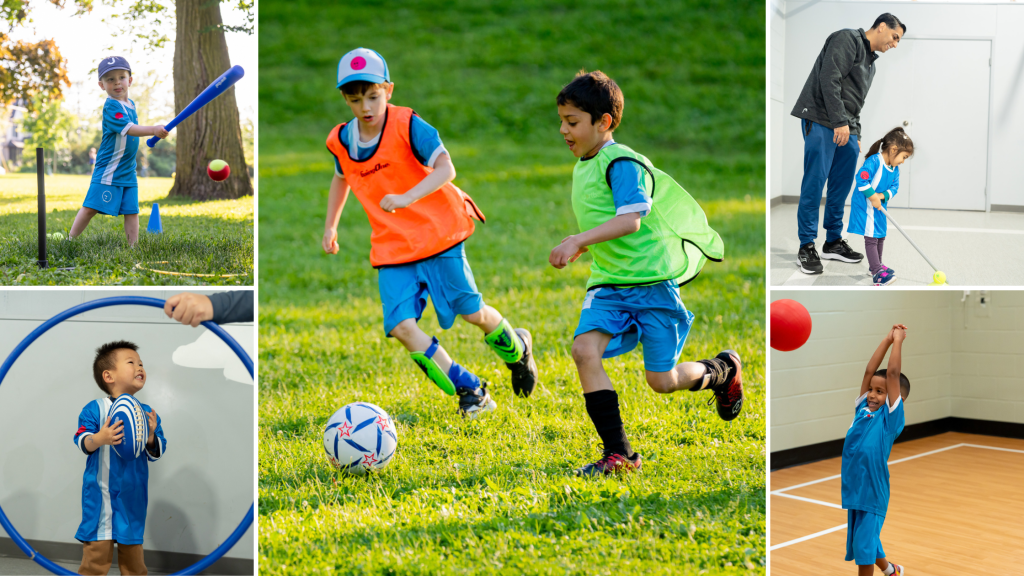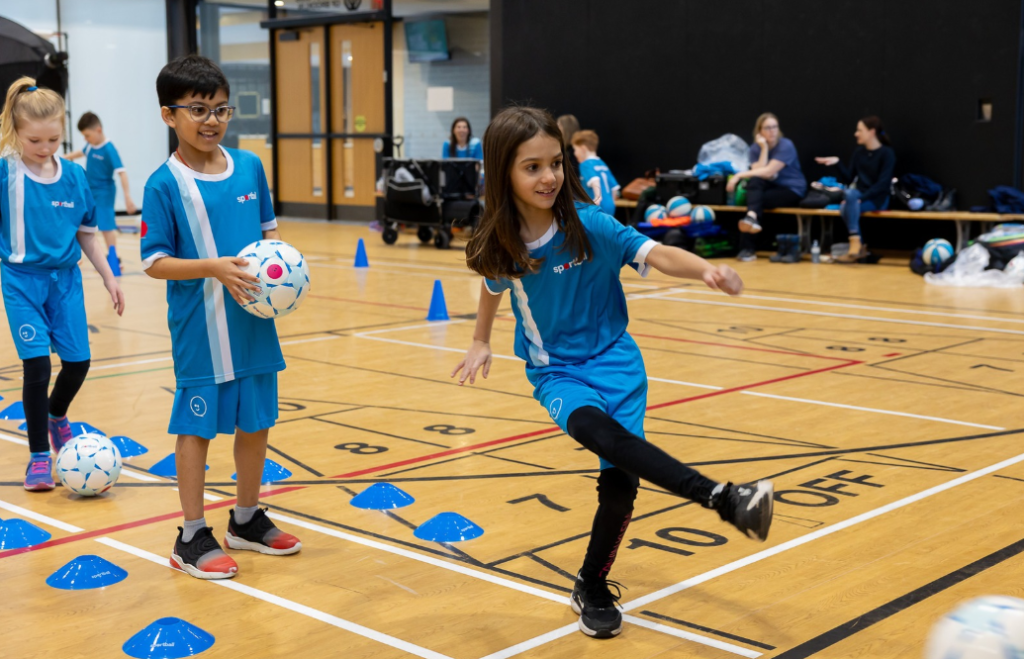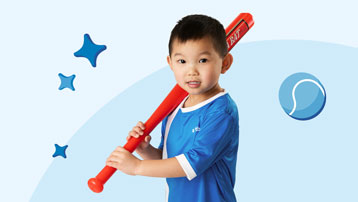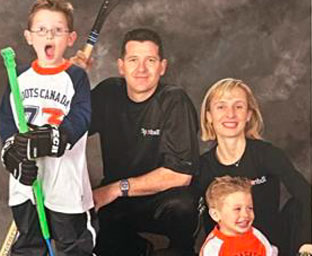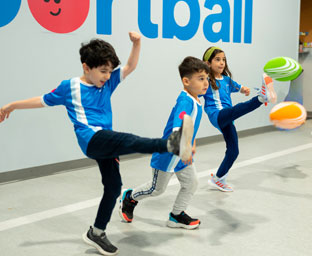What the mighty ducks taught me about being a sports parent
If you grew up in the 80s or 90s, there’s a high probability that you’ve seen The Mighty Ducks movie (likely the sequel and threequel as well, although the original was arguably the pinnacle). It’s a classic underdog story about a rag tag group of kids who above all odds, *spoiler alert* become the pee wee hockey champs in their division with the help of their beloved coach, Gordon Bombay (Emilio Estevez). It also had us rocking out to Queen’s “We Are the Champions” to celebrate every sports win since.
I recently watched this movie again with my own kids and came to realize that it has a much more important message for us adults vis a vis Coach Bombay. As a kid, Coach Bombay’s story took backstage to the antics of Charlie and the gang, but as a parent, this movie hits different.
It’s a story about a child hockey star who quits the game because of a toxic coach, only to repeat the cycle as an adult with a “win at all cost attitude” in his career. When he’s sentenced to 500 hours of community service in a plea bargain for a DUI charge (the 90’s was a wild time for what could fly in a kids movie!), he’s forced to reckon with his engrained expectations of success, find the fun in the game again, and in true Disney fashion, become a better human through the process.
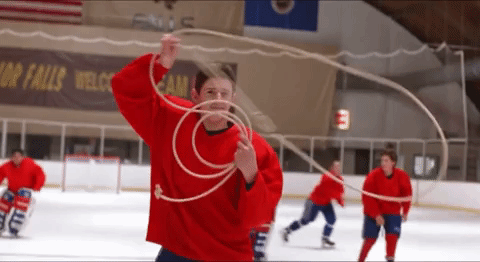
In a scene from the Mighty Ducks, Dwayne Robertson plays a game of “round up” as the team refocuses on skill-building through play, rather than an obsession with winning.
Real life lessons from Disney? Keeping sports fun to keep kids in sports.
Despite being a fictional story, this all too real depiction of hyper-competitiveness in children’s sports should give parents pause. If you played sports growing up and/or have a child in organized sports today, it’s very likely you’ve come across a character not unlike Coach Rilley, the antagonist of the story.
Whether it’s a coach talking about your 6-year old’s development plan for the big leagues, a parent yelling at the referee for an awful call or wanting to dissect every minute of their child’s game play on the car ride home, adults can easily suck the fun out of sports and cause children to drop out in alarming numbers. A well-cited study from George Washington University found that 70% of kids drop out of sports by age 13. Let that number sink in.
Why sports matter
This is a major problem, not just because sports are fun to play, but because sports have proven to really matter in the development of healthy kids.
Sports are more than just games; they’re life lessons on the field.
- Kids learn social skills, build confidence, and discover the joy of moving their bodies.
- They’re about building positive habits like responsibility, punctuality, and the value of practice.
- Sports can help kids build resilience – to get back in the game after a bad play or a painful loss, and teach that life goes on despite the scoreboard.
- They also get kids off screens and onto the field, creating opportunities to form lifelong friendships and learn how to be a team player.
- Sports (especially when kids play a wide variety of them) keep kids moving, helping build physical and mental strength that can serves as preventative medicine against disease.
- They teach kids how to strategize, lead and work hard to achieve their goals. Which is why it’s no surprise that 94% of women in c-suite executive level positions played sports growing up.
Sports are where lifelong skills are built.
So how can we do better?
As parents, we have an important role to play in helping keep our kids in sports – from giving them an age-appropriate first start, to what we say to our kids after the game – when we take the pressure off and let kids play for the fun of it, we increase the chances that they’ll keep playing.
At Sportball, we take our role in supporting you and your children on this journey seriously (despite having a lot of fun in class!). We begin kids in purposeful movement at just 16 months to give them the best possible start by coaching with purpose. We shrink the equipment and the field, to increase success, and focus on age appropriate skills to build their confidence to keep trying. As kids move up in age and skill-level, we increase the challenge while never losing the fun.
Whether your child is destined to be the next Banks or Golberg, Sportball is a place where every kid is invited to play, discover a love for sport and build real skills for real life. Because the ultimate goal isn’t to win at all costs, it’s to keep playing the game.
– Laura Peever, Head of Marketing at Sportball

